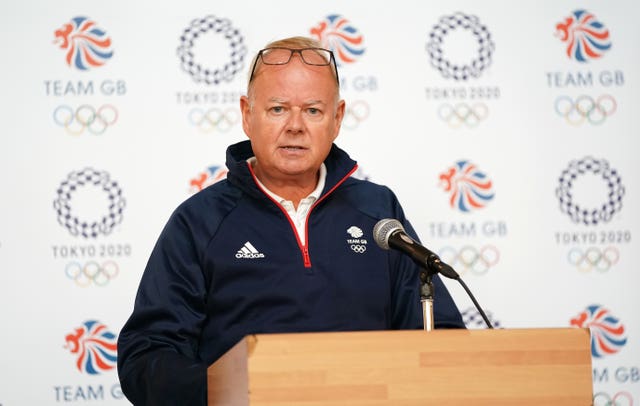
Adam Gemili believes the Tokyo Games will bring the world together in 2021 and is hopeful athletes will be allowed to take a knee in support of the Black Lives Matter movement.
The 32nd summer Olympic Games would have been due to finish on Sunday had the event not been pushed back a year because of the coronavirus pandemic.
Since the International Olympic Committee confirmed that decision in March, a number of sports have encouraged athletes to stand up in the fight against inequality.
George Floyd’s death in May resulted in global protests, with Premier League players and international cricketers in England taking a knee in recent months.
The Olympic Games has witnessed athletes make a stand before, with American runners John Carlos and Tommie Smith notably raising their fist in a Black Power salute at Mexico City in 1968, but Rule 50 of the Olympic Charter prohibits athletes from protesting at the Games.
To hate someone for something that is completely beyond their control is the true meaning of iniquity. To see what is happening to my brothers and sisters in the black community everyday breaks my heart. We must do better, we must be better. We must keep striving for change! 🌍🖤 pic.twitter.com/av0cegJcZ5
— Adam Gemili (@Adam_Gemili) June 3, 2020
Great Britain sprinter Gemili told the PA news agency: “I understand what Rule 50 is, which is against all political protests, but taking a knee is a bit more than political in the grand scheme of things with everything happening in the world.
“I think a lot of federations and a lot of Olympic committees like the BOA, the British Olympic Association, have said they won’t be punishing any athletes and I know a lot of other nations have that mentality as well.
“For the IOC and for next year out in Toyko, I don’t see how they could (punish athletes), because I believe a lot of athletes will use their platform and their voice to speak out and make a difference.
“You remember all those protests on the podium which is great.”
Team GB chef de mission Mark England stated in July he would “absolutely support” any athletes who wanted to collectively choose to support the Black Lives Matter movement.

IOC president Thomas Bach was criticised for appearing to suggest protests in Tokyo would be banned under Rule 50, but in June he announced a consultation process to establish how support can be expressed “in a dignified way”
Gemili and Katarina Johnson-Thompson joined the Athletics Association recently, an independent board launched in 2019 with the aim to protect and advance the future of athletics by unifying and defending the voice of track and field athletes.
American triple and long jumper Christian Taylor is behind the group, which Great Britain athletes feel can make a difference.
“This generation of athletes are no longer just accepting the norm and in a time when things are going crazy in the world, athletes voices have never been more powerful so this coming to fruition is brilliant,” Gemili added.
“Myself and Katarina Johnson-Thompson are fortunate to be board members. We are really passionate about making a change in the sport and giving athletes a voice.”
Gemili was back in London on Friday to complete a Memory Walk in the Olympic Park for Alzheimer’s Society.
His grandma died of dementia and the 26-year-old is eager to raise awareness about the illness, and admitted his biggest drive in life is making those closest to him proud.
“My family are massively important to what I do and who I am today and the values I have as well,” the Great Britain athlete said.
“It is all about my family, everything I do is for them and to make them proud.”
After a hugely disrupted summer, competitions are starting to resume and the British Championships will take place next month behind closed doors at the Manchester Regional Arena.
With Greater Manchester recently put into a regional lockdown, Gemili is not yet sure if he will take part, but has some races lined up and is excited for the countdown to the Olympics.
“If I go to the British Champs, I do but with what’s happening in Manchester right now, we take it day by day,” he added.
“I haven’t really stepped foot on a track, it was only last month really so I was trying to find other ways to train on fields and in parks.
“We were out in the States and got kicked out of god knows how many playing fields which was frustrating and not being able to lift as an elite sprinter, I was almost relieved the Olympics was pushed back.
“If it had gone ahead, and we were training how we were training, I would have been awful.
“But the Olympics is a real goal for next year and I think it is an event which will bring the whole world together.”
From July-October, complete your own Memory Walk and help Alzheimer’s Society be there to support anyone affected by dementia, whoever they are and whatever they are going through. Sign up at memorywalk.org.uk


Comments: Our rules
We want our comments to be a lively and valuable part of our community - a place where readers can debate and engage with the most important local issues. The ability to comment on our stories is a privilege, not a right, however, and that privilege may be withdrawn if it is abused or misused.
Please report any comments that break our rules.
Read the rules here